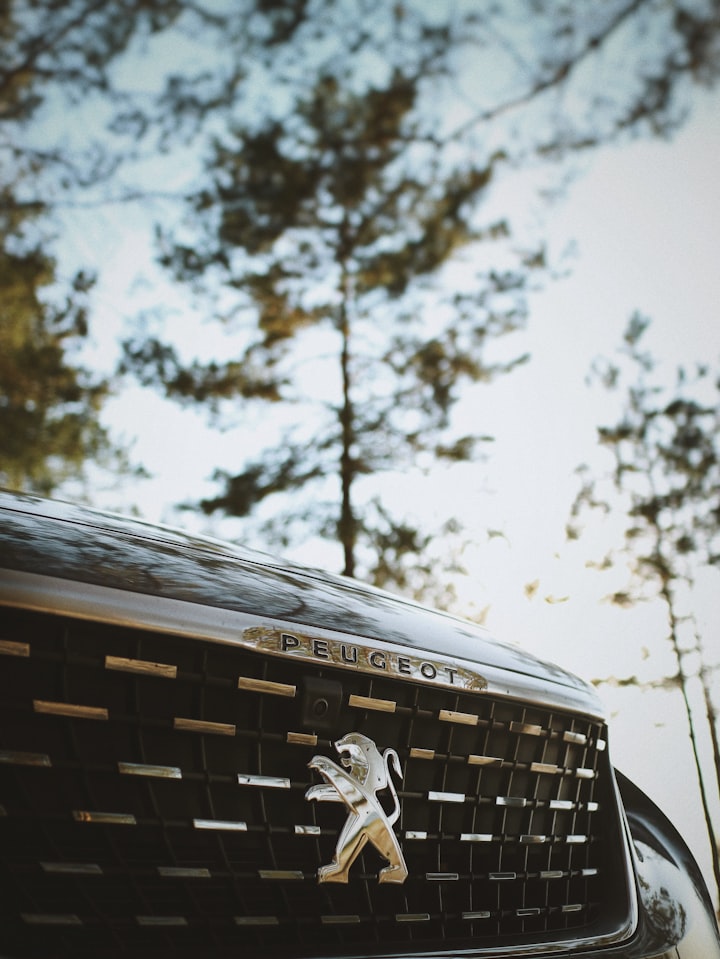Peugeot History
first French car manufacturer

Peugeot is a French automotive manufacturer that was founded in 1810 as a family business producing coffee mills and bicycles. The company began manufacturing cars in 1891 and has since become one of the oldest and most respected names in the automotive industry. Peugeot has a long and diverse history, and here are some of the key milestones:
- 1891: Peugeot produces its first car, a steam-powered three-wheeler.
- 1912: Peugeot introduces its first four-cylinder engine.
- 1929: Peugeot merges with Citroën to form the PSA Group.
- 1934: Peugeot introduces the 402, its first car with independent suspension.
- 1955: Peugeot introduces the 403, its first car with a monocoque body.
- 1965: Peugeot introduces the 204, its first front-wheel drive car.
- 1975: Peugeot introduces the 604, its first car with a V6 engine.
- 1983: Peugeot introduces the 205, a highly successful and popular small hatchback.
- 1998: Peugeot introduces the 206, a successor to the 205 and another highly successful small car.
- 2010: Peugeot introduces the iOn, its first electric car.
- 2021: Peugeot merges with Fiat Chrysler Automobiles (FCA) to form Stellantis, one of the world's largest automotive groups.
Throughout its history, Peugeot has been known for producing innovative and stylish cars, and has won numerous awards and accolades for its designs and engineering. The company has also been heavily involved in motorsports, including rallying and endurance racing, and has achieved significant success in these areas.
What are some of Peugeot's most successful cars in motorsports?
Peugeot has a long and successful history in motorsports, particularly in rallying and endurance racing. Here are some of Peugeot's most successful cars in motorsports:
- Peugeot 205 T16: The 205 T16 was a rally car developed for the Group B regulations in the mid-1980s. It won the World Rally Championship (WRC) in 1985 and 1986, and helped Peugeot establish itself as a dominant force in rallying.
- Peugeot 908: The 908 was an endurance racing car developed for the Le Mans 24 Hours and other endurance racing events. It won the 24 Hours of Le Mans in 2009 and 2010, as well as the Intercontinental Le Mans Cup in 2010.
- Peugeot 405 T16: The 405 T16 was a rally car developed for the Group B regulations in the late 1980s. It won the Paris-Dakar Rally in 1989 and helped Peugeot establish itself as a leader in off-road racing.
- Peugeot 206 WRC: The 206 WRC was a rally car developed for the WRC in the early 2000s. It won the WRC Manufacturers' Championship in 2000, 2001, and 2002, and helped Peugeot achieve significant success in rallying during this period.
- Peugeot 908 HDi FAP: The 908 HDi FAP was an endurance racing car developed for the Le Mans 24 Hours and other endurance racing events. It won the Le Mans Series Championship in 2007, 2008, and 2010, as well as the 24 Hours of Le Mans in 2009.
These are just a few examples of Peugeot's successful motorsports history, and the company has achieved numerous other victories and accolades in various forms of racing over the years.
What other manufacturers did Peugeot compete against in the WRC during the 206 WRC's championship years ?
During the Peugeot 206 WRC's championship years, which were 2000, 2001, and 2002, Peugeot competed against several other manufacturers in the World Rally Championship (WRC). Some of its main competitors during this period included:
- Ford: Ford was a major rival to Peugeot during the 206 WRC's championship years, with its Ford Focus WRC being one of the most competitive cars on the WRC circuit. Ford won the WRC Manufacturers' Championship in 2006 and 2007, among other years.
- Subaru: Subaru was another strong competitor during the 206 WRC's championship years, with its Impreza WRC being a popular choice among top rally drivers. Subaru won the WRC Manufacturers' Championship in 1995, 1996, and 1997, among other years.
- Mitsubishi: Mitsubishi was also a competitive manufacturer during this period, with its Lancer WRC achieving several podium finishes and victories in various WRC events. Mitsubishi won the WRC Manufacturers' Championship in 1998.
- Citroën: While Citroën did not compete in the WRC during the 206 WRC's championship years, it would later become a major rival to Peugeot in the WRC with its Citroën Xsara WRC and Citroën C4 WRC.
These were just a few of the main competitors that Peugeot faced during the 206 WRC's championship years, and the WRC has seen many other manufacturers come and go over the years.
About the Creator
Car Community
high quality car stories , everything you should know about every car ever made.






Comments
There are no comments for this story
Be the first to respond and start the conversation.